
Tired of hearing about the good guys? We all love a sharp, unflappable detective who solves the unsolvable, but let’s be real, sometimes the most memorable characters are the ones who can barely tie their shoes, let alone a complex case. From bumbling police officers to ridiculously inept private investigators, popular culture has given us a delightful rogues’ gallery of investigators who are, frankly, pretty incompetent. And let’s be clear, we’re not talking about your average bumbling sidekick or a clumsy spy like Maxwell Smart; this list is dedicated to the genuine article: detectives whose practices are so far off the mark, they’d be shown the door in today’s law enforcement landscape faster than you can say ‘case closed.’
Modern television, with its gritty realism in shows like *True Detective*, has set a high bar for what constitutes credible police work. This evolution makes the antics of some classic screen detectives even more glaring, highlighting a significant ‘reality gap’ between entertainment and actual investigative procedures. While drama and comedy often require creative license, the sheer absurdity of some of these characters’ methods would have serious, and often immediate, consequences in a real 2024 police department or private investigation firm. It’s a fun thought experiment, but also a stark reminder of the complexities and responsibilities of real-world detective work.
So, buckle up! We’re diving deep into the world of fictional investigative failures, examining how these beloved, yet utterly flawed, characters exemplify the ‘Common Traits of TV’s Worst Detectives’ – from overlooking evidence to making biased decisions. These are the ‘best’ of the ‘worst,’ showcasing practices that would undoubtedly earn them a pink slip today. We’ll start with those whose initial bumbling gives way to a glimmer of competence, but not before demonstrating a host of ‘bad practices.’
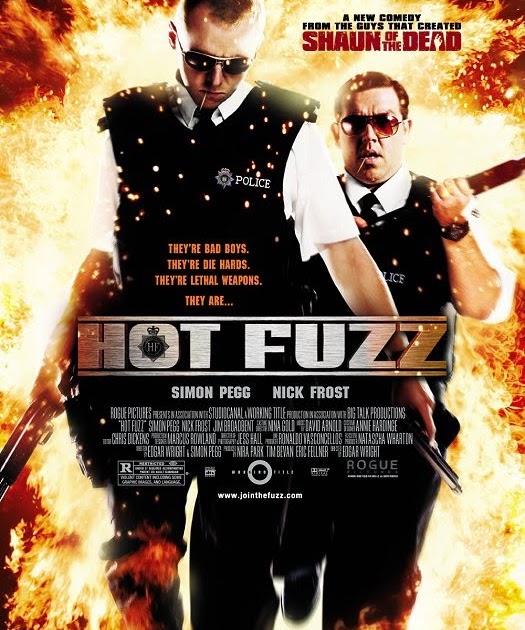
1. **Danny Butterman, Hot Fuzz (2007)**
Danny Butterman, the enthusiastic but utterly naive local detective in Edgar Wright’s brilliant homage to action films, *Hot Fuzz*, is a masterclass in initial incompetence. Portrayed as a character who “can’t really do anything” in terms of effective police work at the outset, Danny embodies the charming, if deeply flawed, small-town officer trope. His world view is shaped more by Hollywood action movies than actual police procedure, leading him to consistently misinterpret situations and overlook crucial details that a seasoned detective would immediately spot. Imagine him in a modern police force, fresh out of the academy, attempting to apply cinematic rules of engagement to mundane cases. It’s a recipe for disaster.
His well-meaning but often misguided approaches would fall squarely under the category of ‘consistently overlooking obvious evidence.’ Danny often needs the highly competent Sergeant Nicholas Angel to literally point out the glaring anomalies in their supposedly crime-free village. In 2024, where meticulous evidence collection and forensic analysis are paramount, a detective who routinely misses the forest for the trees would quickly find themselves sidelined or, worse, subject to disciplinary action. His initial lack of genuine investigative skill, masked by a desire for excitement and heroics, makes him a prime candidate for early retirement from active duty in a world demanding precision and objective analysis.
Furthermore, Danny’s tendency to jump to conclusions, albeit with good intentions, would undoubtedly violate modern investigative ethics. He’s quick to assume that events align with his preconceived notions of action movie plots, rather than carefully gathering facts and building a case brick by logical brick. This kind of ‘jumping to conclusions without proper investigation’ is a red flag for any police department in an era focused on due process and avoiding wrongful accusations. While his heart is always in the right place, his head is often lost in a fantasy, a trait that simply wouldn’t be tolerated in a contemporary, evidence-driven police environment, no matter how charming his earnestness.
His character arc sees him ‘step up’ and grow, eventually becoming a competent partner to Angel. However, the journey to that competence is riddled with practices that highlight his early inadequacy. In a system that emphasizes proactive training and consistent performance, a detective requiring such extensive, on-the-job remedial education in basic investigative skills would raise serious questions about their suitability for the role. Danny Butterman is a beloved character for his development, but his initial professional standing would make him an easy target for dismissal in the uncompromising reality of a 2024 police force.

2. **Terry Hoitz and Allen “Gator” Gamble, The Other Guys (2010)**
Oh, these guys. Mark Wahlberg and Will Ferrell as Terry Hoitz and Allen “Gator” Gamble in Adam McKay’s *The Other Guys* give us a duo whose incompetence is so profound, it’s almost poetic. The context perfectly sums it up with ‘Ugh, these guys.’ They are two cops desperately trying to prove themselves, Hoitz because he infamously shot Derek Jeter by accident, and Gamble because he’s a desk-bound “nerd.” Their shared desire to escape the shadows of their past mistakes or perceived shortcomings fuels a series of hilariously bad decisions, making them quintessential examples of detectives whose practices are just begging for a termination letter in the modern era.
Terry Hoitz’s defining characteristic, having ‘previously shot Derek Jeter by accident,’ immediately screams ‘violating basic procedural protocols’ and a profound lack of judgment. In any police department, accidentally shooting a celebrity would trigger a massive internal investigation, leading to immediate suspension and likely dismissal. This isn’t just a minor slip-up; it’s a catastrophic failure undermining public trust, situational awareness, and weapon safety. In 2024, such an incident would not only result in termination but also likely lead to criminal charges or civil lawsuits, permanently ending his career.
Allen Gamble, on the other hand, is cast as a “nerd,” suggesting a potential lack of street-level investigative skills and perhaps an over-reliance on rules without understanding their practical application or the nuances of human behavior. While being ‘nerdy’ isn’t inherently bad, his drive ‘to prove himself’ in a way that goes against his nature would lead to forced, unnatural, and ultimately ineffective policing. This could manifest as ‘failing to follow up on crucial leads’ because he’s bogged down in irrelevant details, or ‘jumping to conclusions without proper investigation’ in an attempt to look competent. The combination of Hoitz’s recklessness and Gamble’s misplaced ambition creates a volatile partnership where proper procedure is consistently sacrificed for personal gain or perceived validation.
Together, Hoitz and Gamble embody a significant problem in detective work: ‘making decisions based on personal bias rather than evidence.’ Their entire motivation stems from their personal insecurities and a burning desire for recognition, not a commitment to justice or objective truth. This bias would warp their investigative process, leading them to ignore inconvenient facts, misinterpret situations, and generally make a hash of any case they touched. While they ‘will manage to save the day’ through sheer comedic force, their real-world counterparts operating with such flagrant disregard for professionalism would quickly find themselves unemployed and potentially facing legal repercussions for their spectacularly bad practices.
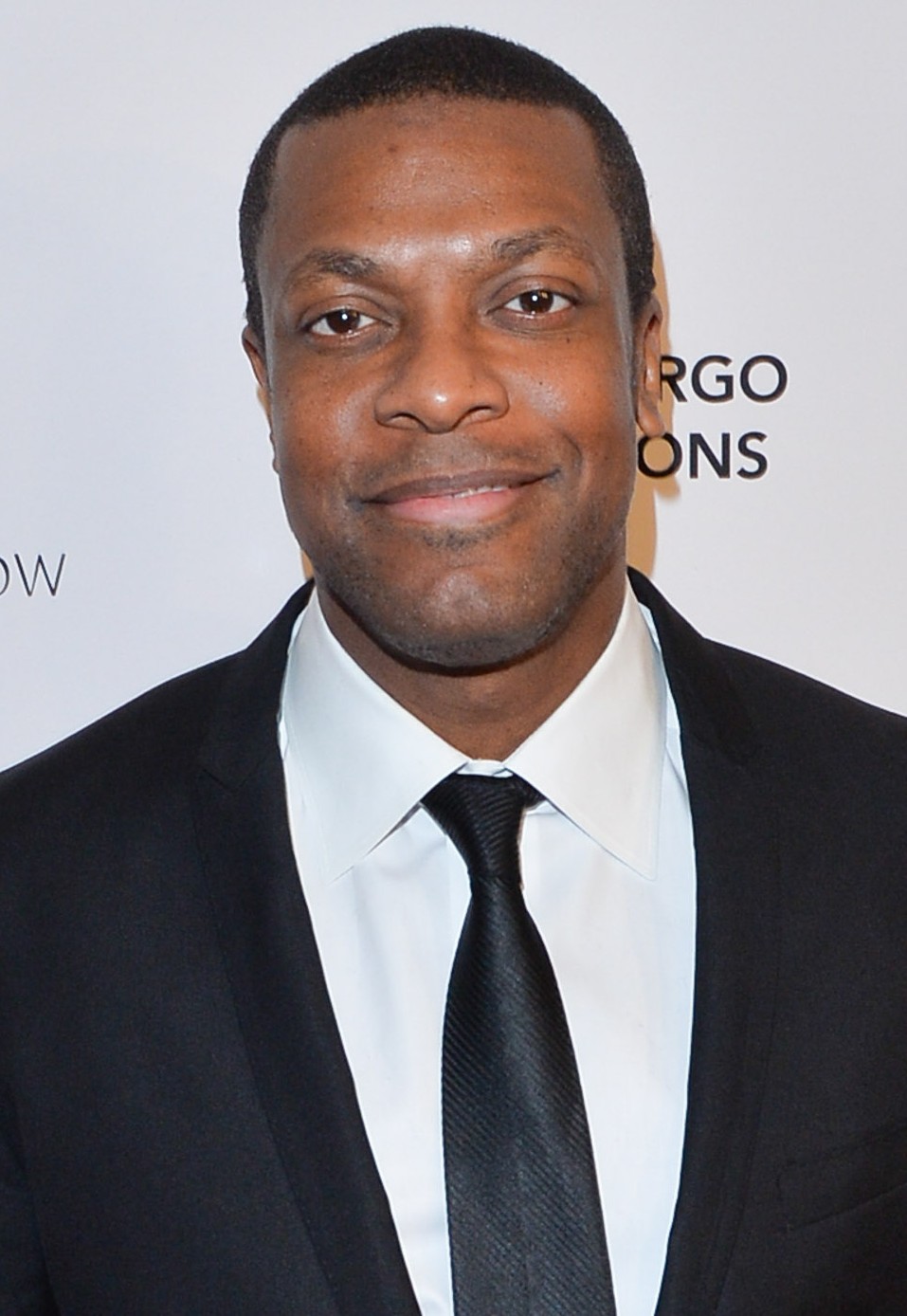
3. **James Carter, Rush Hour (1998)**
Chris Tucker’s portrayal of LAPD Detective James Carter in *Rush Hour* gives us a character whose defining traits are ‘self-obsessed, a bit of a loose cannon, and quite loud.’ These characteristics, while providing endless comedic relief and setting up fantastic buddy-cop dynamics with Jackie Chan’s Chief Inspector Lee, are precisely the kind of red flags that would see a detective like Carter dismissed from a modern police force with astonishing speed. His approach to policing is less about methodical investigation and more about personal glory, making him a walking violation of contemporary professional standards.
Carter’s ‘self-obsessed’ nature is a critical flaw that would lead him to ‘making decisions based on personal bias rather than evidence.’ In a 2024 investigation, objectivity is paramount. A detective who constantly centers himself in the narrative, seeks the limelight, or allows personal feelings to dictate strategy would compromise the integrity of any case. This self-absorption can lead to missing vital clues because he’s more focused on delivering a witty one-liner or being the hero than on the subtle details of a crime scene. Such behavior undermines trust within the department and can even prejudice court proceedings, making his actions a serious liability for any police agency.
Furthermore, Carter being ‘a bit of a loose cannon’ directly translates to ‘violating basic procedural protocols’ on a regular basis. Modern policing emphasizes strict adherence to rules of engagement, evidence handling, and suspect interaction. A detective who routinely deviates from these established guidelines, whether through unauthorized actions, excessive force, or general disregard for chain of command, would be subject to severe disciplinary action, including suspension or termination. His spontaneous, often reckless, decisions might work for comedic effect in a movie, but in reality, they would jeopardize investigations, endanger colleagues and civilians, and expose the department to significant legal risk. He’s the kind of cop internal affairs would have a permanent file on.
The context notes that Carter ‘does learn to work well with others throughout the course of the film… But it takes some time! A lot of time.’ This is the crucial point for his dismissal in 2024. Modern police training and departmental expectations demand officers are team players from day one, capable of seamless collaboration. An individual who requires ‘a lot of time’ to grasp fundamental teamwork, or who initially prioritizes his own agenda over collective effort, would be deemed unsuitable for a high-stakes, team-oriented investigative unit. His initial resistance to cooperation and his tendency to go rogue would be seen not as character development, but as a persistent professional failing that simply cannot be afforded in today’s interconnected, accountable law enforcement environment.
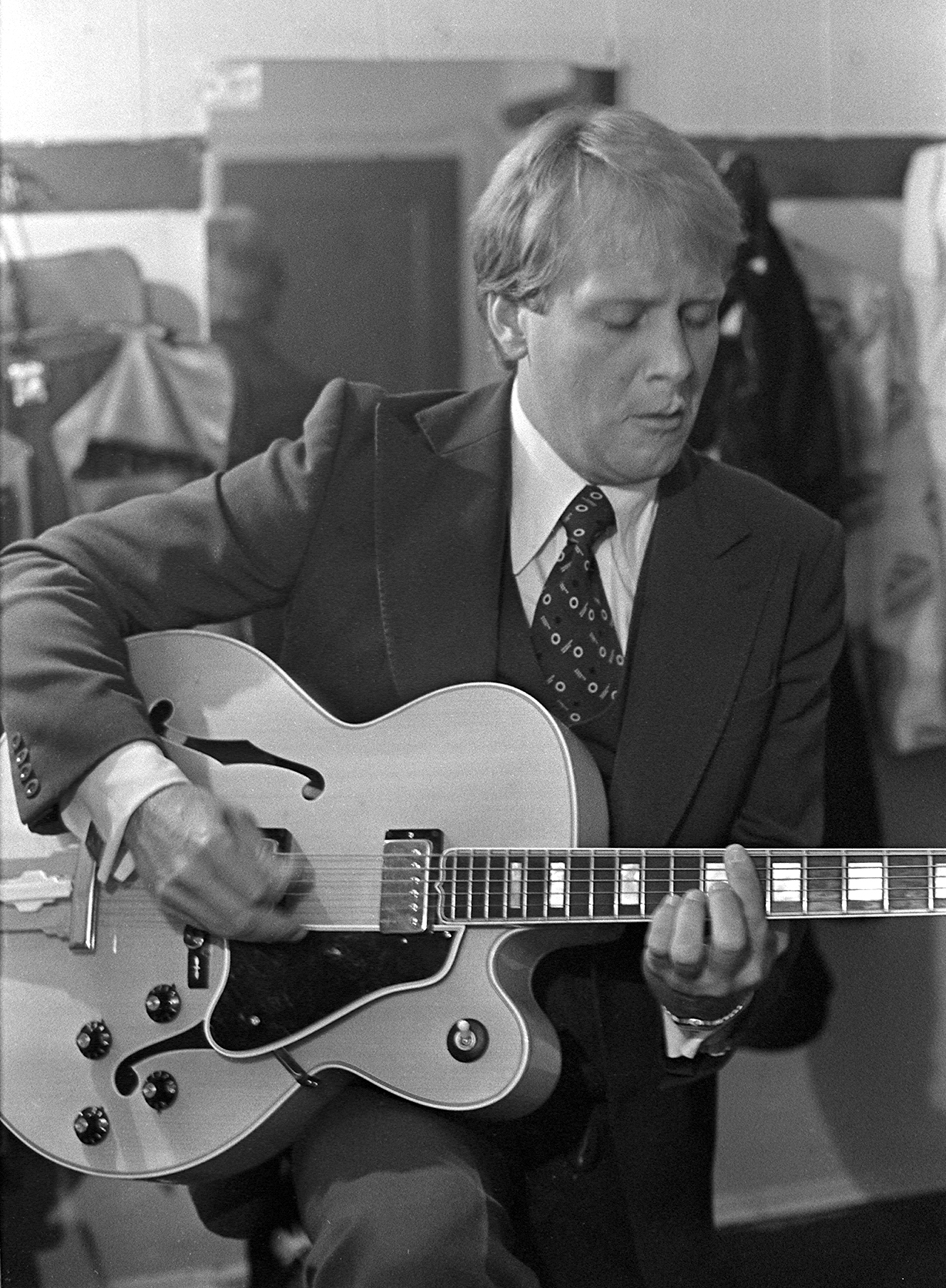
4. **Gene Parmesan, Arrested Development (2003-2019)**
Ah, Gene Parmesan, the Bluth family’s famously unreliable private investigator. His appearances were always met with Lucille Bluth’s iconic, delighted shriek, “GENE!!!” As the narrator (Ron Howard) succinctly put it, “‘Gene was far from the best.’” Martin Mull’s portrayal is comedic gold, but it also paints a vivid picture of a PI whose methods are so spectacularly unconventional and ineffective he would be a laughingstock and immediate liability in any legitimate investigative capacity in 2024. He’s the anti-Sherlock, a character whose competence is inverse to his flamboyant charm.
Gene’s most memorable trait is ‘his arriving to every meeting in an ostentatious disguise.’ While this provides fantastic humor, it directly contradicts the core principles of discreet, effective private investigation. Imagine a PI in 2024 showing up to a covert surveillance operation dressed as an elderly woman, a construction worker with a comically oversized mustache, or a full mariachi band member. Not only would such theatrics compromise any element of surprise or anonymity, but they would also draw unwanted attention, making it impossible to gather genuine, unbiased information. This isn’t just a lack of professionalism; it’s a complete misunderstanding of the job itself, showcasing an individual utterly incapable of blending in or operating unnoticed.
His ineffectiveness isn’t just about his terrible disguises; it’s about the tangible results, or lack thereof. The context states that he’s ‘not so incompetent that he can’t get important information, so he’s going down here.’ This implies a baseline level of success, but it’s often stumbled upon rather than methodically achieved, and largely due to the sheer chaos of the Bluth family. In a real 2024 scenario, clients hire private investigators for concrete, reliable results based on sound investigative techniques, not for a theatrical performance. Gene’s reliance on elaborate, attention-grabbing entrances would mean he’s constantly ‘failing to follow up on crucial leads’ because he’s too preoccupied with his next grand reveal, or simply alienating potential sources with his bizarre behavior. He’d spend more time being recognized (or ridiculed) than actually investigating.
Moreover, Gene Parmesan’s practices would violate fundamental ‘basic procedural protocols’ for a private investigator. Proper evidence collection, detailed reporting, and maintaining client confidentiality are cornerstones of the profession. Gene’s flamboyant style suggests a disregard for such meticulousness, and his ‘far from the best’ status implies he’s not prioritizing the integrity of his investigations. In a highly regulated field like private investigation, a PI whose primary skill is dramatic unveiling rather than discreet information gathering would quickly lose their license, their clients, and their reputation. His incompetence, while endearing to the Bluths, would be a career-ender in 2024, proving that sometimes, even the most beloved characters would be instantly unemployable.
It’s time to double down on the delightfully disastrous, because our journey through the hall of shame for fictional detectives is far from over. We’ve covered some truly questionable characters, but now we’re venturing into a realm of incompetence so profound, it almost feels intentional. These next four individuals take bad practices to an art form, demonstrating that sometimes, the only way a case gets solved is through sheer dumb luck, or perhaps, the unwitting efforts of others. If you thought the first batch was bad, prepare for a whole new level of investigative ineptitude.

5. **Harry Crumb, Who’s Harry Crumb? (1989)**
Ah, Harry Crumb, the eponymous PI played by the incomparable John Candy in this very 80s comedy. The context gives us a tantalizing hint: he’s an “inept PI” hired to find someone he’s *supposed* to never find, yet he’s “both a better and worse detective than others expect.” Now, in 2024, if a private investigator were even suspected of taking a case with the express purpose of *not* solving it, their license would be revoked faster than you can say “conflict of interest.” This isn’t just bad practice; it’s a foundational breach of ethical conduct, essentially a contract to commit fraud.
Crumb’s unpredictability, while comedic gold, would be an absolute nightmare in any real-world investigation. Modern detective work, whether public or private, thrives on methodical procedure, consistent application of skills, and reliable outcomes. A PI whose success (or failure) is a roll of the dice simply doesn’t cut it. He’s the kind of investigator who would be “failing to follow up on crucial leads” not out of malice, but because he’s distracted by a snack, a disguise, or simply a fleeting thought that sends him down an entirely irrelevant rabbit hole.
His tendency to stumble into answers, or conversely, mess up even the simplest task, makes him a master of “jumping to conclusions without proper investigation.” In a cinematic world, this quirk provides laughs and plot twists. In reality, it leads to miscarriages of justice, wasted resources, and deeply frustrated clients. Imagine trying to present Harry Crumb’s findings in court today – the cross-examination alone would be a comedy of errors, dismantling any shred of credibility he might have accidentally built.
Beyond the ethical quagmire of his initial hiring, Crumb’s overall approach to investigation would violate just about every “basic procedural protocol” in the book. From his often ridiculous disguises that draw more attention than they deflect (a theme we might see elsewhere on this list!) to his generally clumsy handling of situations, he’s a walking lesson in how not to conduct an inquiry. His ineptitude isn’t charming when the stakes are real; it’s a severe professional failing that would quickly lead to his firm going bust, or his license being permanently revoked.
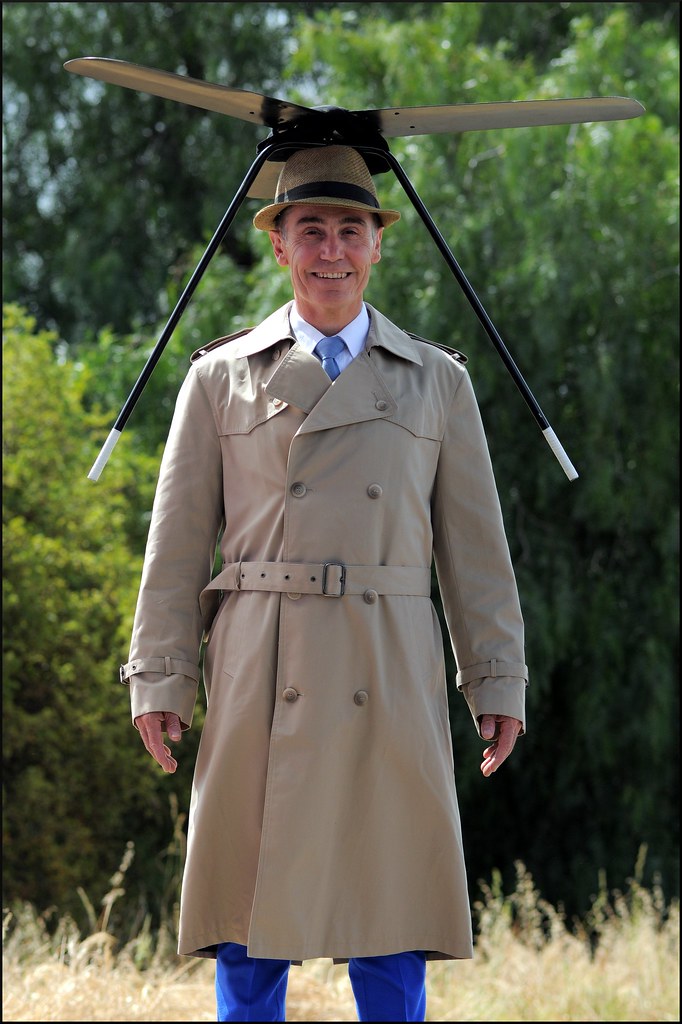
6. **Inspector Gadget, Inspector Gadget (1983)**
Behold, Inspector Gadget, the original argument for why robots will *not* save us, as the context so perfectly puts it. The point of his character is that he’s a “cyborg; he’s got lots of, well, gadgets that pop out of him to help him do stuff. But they don’t help! He’s incompetent.” In an era where law enforcement is increasingly integrating AI and advanced tech, Gadget stands as a hilarious, yet stark, cautionary tale: tech is only as good as the operator. And in Gadget’s case, the operator is… well, Gadget.
His core failing is a profound inability to actually *use* his plethora of gizmos effectively, leading to “consistently overlooking obvious evidence.” Imagine a sophisticated crime scene, bristling with potential clues, and Gadget’s spring-loaded arms flailing wildly, or his helicopter hat whisking him away just as a vital piece of evidence is discovered. His gadgets rarely (if ever) point him toward the truth; instead, they often create more confusion and actively impede his progress, making him arguably worse than having no tools at all.
Furthermore, Gadget’s uncontrolled gadgetry is a prime example of “contaminating crime scenes” on a grand scale. Every unexpected pop, whir, or accidental explosion from his body isn’t just comedic; it’s a forensic nightmare. Fingerprints destroyed, DNA evidence compromised, crucial details obliterated by an accidental blast of his flamethrower finger – the list of potential contamination scenarios is endless. In a 2024 police department, he wouldn’t just be fired; he’d be quarantined from all active investigations for being a walking biohazard to evidence collection.
Perhaps the most damning indictment of Inspector Gadget’s investigative prowess is the fact that “His human niece and dog are way more capable.” Think about that for a second. The actual detective work, the careful observation, the deductive reasoning, the following of crucial leads – it’s all done by a child and a pet. In any modern organization, this level of dependency on unauthorized and unqualified assistants would be grounds for immediate dismissal for gross negligence and outsourcing core responsibilities to, quite literally, children and animals. He’s an AI condemnation, yes, but also a human competence condemnation.

7. **Frank Drebin, The Naked Gun: From the Files of Police Squad! (1988)**
Enter Frank Drebin, Leslie Nielsen’s iconic detective, who the context tells us “can’t do anything, plus he’s cocky.” This potent combination of absolute ineptitude and unshakeable arrogance makes Drebin a truly special kind of terrible detective. He’s an “excellent combination of film noir sensibilities, and goofy ham-handedness,” which translates in the real world to a relentless stream of “bad practices” that would earn him a one-way ticket out of law enforcement. His confidence is a weapon, often pointed directly at his own career.
Drebin’s “ham-handedness” is a polite way of saying he’s a walking disaster area when it comes to any kind of delicate or precise police work. He is the master of “contaminating crime scenes,” often through a series of increasingly absurd and destructive accidents. Imagine him carefully dusting for prints; it would invariably end with the entire room either in flames or submerged in water. In 2024, where meticulous evidence handling and forensic integrity are paramount, Drebin would be the subject of daily internal affairs investigations and endless liability lawsuits.
Moreover, his unearned cockiness fuels a dangerous tendency to engage in “jumping to conclusions without proper investigation.” Drebin operates on a logic system unique to himself, often making grand, incorrect pronouncements with the gravitas of a seasoned veteran, even as evidence (or common sense) points elsewhere. This isn’t just poor judgment; it’s a systemic flaw that would lead to countless wrongful arrests, botched cases, and a complete erosion of public trust in the department he represents. His intuition is often wildly off-base, yet he barrels forward with unwavering conviction.
Beyond the procedural nightmares, Drebin’s entire mode of operation involves “violating basic procedural protocols” with gleeful abandon. He treats police regulations as mere suggestions, his superiors as hindrances, and due process as an optional extra. In a contemporary police environment, such blatant disregard for rules, coupled with his chronic inability to perform basic duties, would mark him as a severe operational risk. He might deliver a great one-liner, but he’d also deliver the department into a mountain of legal trouble and public relations disasters.
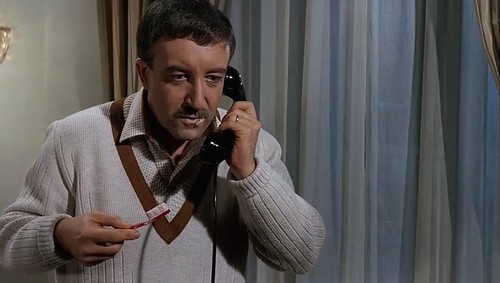
8. **Jacques Clouseau, The Pink Panther (1963), etc.**
‘Zere we go! The undisputed champion, “The OG idiot detective!” Peter Sellers’s Inspector Clouseau. The context says he “needs no introduction… what he needs is help!” And help, he most certainly does. The article’s introductory framing notes this list is arranged from most to least competent, with number 1 (or in our case, number 8) being the “most least competent.” Clouseau, in his magnificent bumbling glory, embodies every single “bad practice” on our list, elevated to an art form of accidental destruction and unintentional chaos.
Clouseau is the ultimate example of “consistently overlooking obvious evidence.” Clues aren’t just missed; they are actively ignored, tripped over, or accidentally destroyed in his wake. His perception of a crime scene is uniquely distorted, often leading him to pursue the most convoluted and incorrect theories while the truth stares him directly in the face. In a world demanding sharp analytical skills and meticulous attention to detail, Clouseau’s investigative process is less a method and more a comedic force of nature, completely devoid of actual effectiveness.
His entire career is a testament to “violating basic procedural protocols.” From his interactions with suspects that escalate into slapstick brawls, to his disregard for chain of command, to his uncanny ability to provoke international incidents, Clouseau is a walking breach of conduct. He doesn’t just bend rules; he obliterates them through sheer, unadulterated clumsiness and misplaced authority. In 2024, he wouldn’t just be fired; he’d be an international incident, a diplomatic nightmare, and a legend of what not to do in public service.
Furthermore, Clouseau is a master of “contaminating crime scenes” and actively “failing to follow up on crucial leads.” His investigations often leave a trail of broken furniture, exploded traps, and utterly baffled witnesses. Any forensic evidence he doesn’t personally destroy, he probably muddles with his nonsensical theories and an uncanny ability to turn any controlled environment into a demolition zone. He’s the guy who would spill coffee on the only piece of paper that matters, then blame the coffee.
Perhaps the most astonishing aspect of Clouseau’s legacy is that he somehow, almost always by accident, manages to solve the case. This isn’t due to his skill but despite his catastrophic lack of it. In today’s accountable and data-driven world, a detective whose “success” rate relies entirely on serendipity and the even greater incompetence of the criminals would be completely unsustainable. His professional failings are so profound, so utterly pervasive, that he represents the absolute pinnacle of investigative ineptitude, a character who would not merely be dismissed, but probably escorted off the premises by a heavily armed tactical unit.
So, there you have it: a delightful romp through the absolute worst of movie and TV detective-dom. From naive small-town officers who mistake life for an action movie, to cocky cyborgs whose gadgets are more dangerous than helpful, and all the way to the “OG idiot” whose very presence is a threat to public safety and international relations. These characters, while endlessly entertaining, offer us a hilarious, yet stark, reminder of the complex realities of real-world law enforcement. They highlight the absolute necessity of meticulous procedure, objective evidence collection, unwavering professionalism, and yes, even basic competence. While we cheer for their accidental triumphs on screen, let’s be thankful that in 2024, these detectives would likely find themselves swiftly unemployed, leaving the actual crime-solving to those who can, you know, actually solve crimes without blowing up half the city. It’s a fun thought experiment, but in the end, the badge belongs to the diligent, the disciplined, and the genuinely capable.



